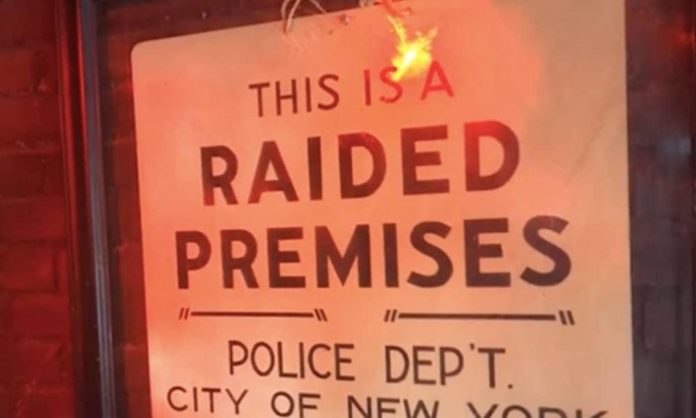
New Jersey has finally issued a formal apology for the state’s decades-long efforts to crush gay bars, admitting it is past time “to right this historical wrong”.
For decades New Jersey’s law enforcement weaponised its liquor laws to systematically target LGBT+ venues, beginning from the time Prohibition ended in 1933 up until 1967.
A long overdue apology finally came on Tuesday (29 June) in a ceremony near the site of what was once the Paddock Bar before it was closed by a series of raids.
“The attorney general’s office is charged with furthering justice in New Jersey, and yet for more than three decades, our office fell far short,” admitted attorney general Gurbir Grewal.
“The time has come to acknowledge this failing, to apologise for what happened, and to make sure it never occurs again. We are committed to righting this historical wrong and strengthening our relationship with New Jersey’s LGBTQ+ community.”
Scores of gay bars were targeted by the discriminatory raids, which were based on post-Prohibition-era regulations that barred liquor license holders from allowing “female impersonators” on their premises.
Another rule barred businesses being run “in such a manner as to become a nuisance” – a term that included the “congregation of apparent homosexuals”, according to Grewal.
Certain LGBT+ venues, like the famous Stonewall Inn, were able to find safe harbour with organised crime families, but this opened patrons to a whole other level of exploitation while offering little real protection.
Promising “to right this historical wrong”, Grewal issued a directive to the state’s Division of Alcoholic Beverage Control to eliminate a total of 126 actions it took against queer establishments between 1933 and 1967.
Previous “offenders” include the owner of Newark’s Log Cabin Inn, who in 1938 was accused of allowing “female impersonators and persons of ill repute” into the establishment.
In 1941 another gay bar owner was written up due to the presence of “a group of men whose voices, gestures and actions were effeminate”, who acted in a manner police deemed “entirely inconsistent with the normal conduct of men”.
Records of all these violations are now publicly available through the state’s website. “We have to really shine a light on this ugly history,” Grewal said.
The documents will also form the basis of sample lesson plans in New Jersey, which as of last year requires public middle schools and high schools to teach LGBT+ history across the curriculum.
“The inhumanity and the vitriol in the language was striking, to say the least,” said James Graziano, who oversees liquor licensing in New Jersey, speaking to the New York Times. “It’s important to have this historical record, so we can do better.”
The liquor licensing division will also undergo an evaluation to determine if “any other communities were subject to discriminatory enforcement actions” in its history.
Graziano said his department condemns “the harm our agency caused to members of the LGBTQ+ community and offer[s] our sincere apologies to the generations of individuals impacted by it.”
New Jersey governor Phil Murphy also acknowledged the damage these laws had done to so many, and for so long.
“For too many years, New Jersey failed to live up to its professed values of diversity, inclusion, and respect as it relates to our LGBTQ+ community,” he said in a statement.
“While we cannot undo the injustices of the past, today’s action by attorney general Grewal demonstrates our commitment to recognising the harms that have been suffered and acting to provide support to New Jersey’s LGBTQ+ residents.”







